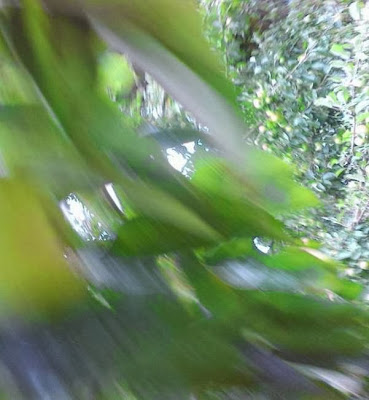[As this is my last blog post until January 2nd, I'm putting up more than a snippet this week. This is a short story written earlier this year for a competition on the theme of 'Stars'. I hope you enjoy it. May I wish everyone a joyous holiday, whatever you celebrate, and a peaceful New Year. See you in 2014.]
After the funeral, Amy’s grandparents took her to live with them on the farm. Clambering down from the back of the battered, muddy Land Rover, her gaze was drawn to the wide patch of light making a path from her feet, across the yard and through the field towards the horizon where a creamy cratered moon stared down on her. She leaned backwards against the vehicle and gasped as she slowly took in the display above her head. Orion’s Belt, the Plough, the Great Bear plus many others she couldn’t name; and threading through them all, the glowing arch of the Milky Way. As a well-educated teenager with an interest in science, she recognised these phenomena from the books she’d read and the television programmes she’d watched with her parents. But as a city girl visiting the Devon countryside for the first time in many years, this was a whole new experience.
“Well, maybe, but only after making its way spectacularly to the afterlife.” He squeezed her shoulders and bent to wipe the tears from her cheeks. “Come child, let’s go in. Tomorrow night, I’ll take you to watch their final journey.”
“Nanny, are you sure you don’t want to come with us,” Amy said the next evening as she and her grandfather collected together blankets, torches and a flask of hot chocolate.
“Good gracious no, child,” laughed her grandmother, “My star-gazing days are over. I’ll just settle down with my new Dick Francis until you get back.”
“The Greeks believed a shooting star was good luck,” said her grandfather.
“Maybe we should see if we could track one, see where it falls.”
“Or better still, catch it in mid-flight,” laughed Amy. Suddenly, she sat bolt upright. “Gramps, I’ve got an idea! Can we come back tomorrow?”
When the pair left the farmyard for their starry theatre the next evening, Amy had an old butterfly net tucked under her arm. As they lay watching the display, she tried to wrap the net around each of the fiery trails. Her head told her it was an impossibility, but part of her still had to keep trying; the part of her that wanted to believe if she could catch her parents’ stars she would be able to keep them with her a bit longer.
“No, that was someone else,” she would whisper each time she missed. “When
it’s you, I’ll know.”
Amy didn’t catch her shooting star that night, nor any night that week. As August gave way to September, she started at her new school and star-gazing was replaced, at her grandmother’s insistence, with homework and early nights. As time passed, the hurt became less of a sharp knife in her stomach and more like a dull ache that could be ignored most of the time.
But this year, it was too late. She’d got the call while she was on a photo shoot in Kenya. A heart attack, a short, sharp shock and it was all over. Standing at the graveside where her beloved Gramps was now reunited with his wife, Amy smiled through her tears.
“I guess you’ll have a ringside seat at the show this year Gramps,” she said, “and no doubt Nanny will be keeping you company once more. But don’t worry, I won’t be alone either. I’ve brought someone with me; I think you’d like him.” Then, dropping her flowers on the grave, she turned away to where her new boyfriend, Ian, stood waiting for her. He was an astronomer; they’d met when she’d attended a lecture he’d given on The Myths and Realities of Shooting Stars.
Late that night, Amy and Ian left the farm she now owned, carrying blankets, torches and hot chocolate. They crossed the field to lie under the stars and say farewell to Gramps. And for one last time, Amy had a butterfly net tucked under her arm.














